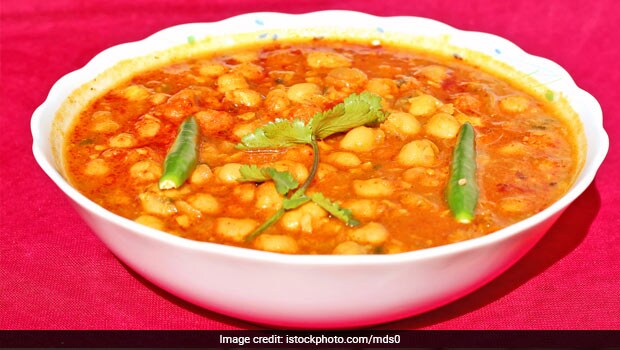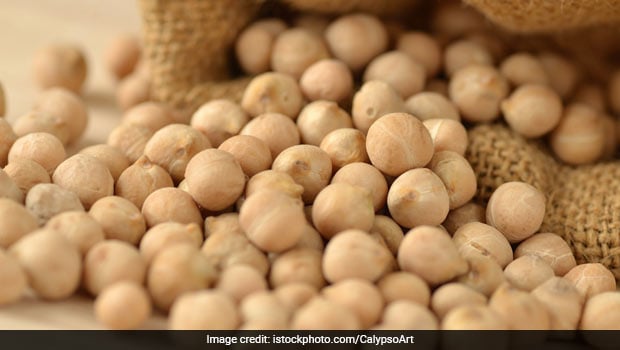Chickpea or chana is one of the most celebrated vegetarian ingredients in the Indian cuisine. Chickpeas are nutritionally, very well endowed and are rich in two of the most important macro nutrients required for a healthy life and for keeping fit- protein and fibre. The middle-eastern dip hummus has been considered a gem by vegans and vegetarians for its incredible nutritional profile, most of which is due to the chickpeas in it. But nowadays, chickpeas are finding their way into more and more dishes around the world, all thanks to the fact that veganism has increasingly become trendy and cool.
One may understand why chickpeas are a treasured find for all vegetarians- they are full of good quality lean proteins, which may be hard to get from a largely plant-based diet. Legumes are also in the same protein-rich league. But chickpeas are also versatile and can be turned into a whole range of delicacies, which combine taste and nutrition. Commonly referred to as safed chana, chickpea is a plant-protein and that you may find an invaluable addition to your diet, especially if you are looking to load up on some much-needed protein.
Chickpea Nutrition And Values
The humble safed chana or chhola that Indians have grown up loving has a nutritional profile that seems to have been tailor-made for fitness freaks. A 100 gram portion of boiled chickpeas contain 9 gm of protein, 8 gm of dietary fibre and no cholesterol (as per data by United States Department of Agriculture). It also contains just 2.6 grams of fat, as well as good amounts of iron and magnesium (16 per cent and 12 per cent of Daily Value respectively). The same portion also contains 164 calories and is fairly filling as well.
Also Read: 13 Best Chickpea Recipes | Best Chana Recipes
 Chickpea Nutrition: The Middle-eastern dip hummus is made from boiled chickpeas
Chickpea Nutrition: The Middle-eastern dip hummus is made from boiled chickpeasChickpea Benefits
Here are some well-known benefits of chickpea that is also known as the Bengal gram or Egyptian peas:
1. Weight Management
The presence of good amounts of protein and fibre means that chickpeas are suited for a healthy weight loss diet. Both protein and fibre have been known to promote satiety, curbing hunger pangs and helping in weight management.
Also Read: High-Protein Diet: How To Make Chatpata Hara Chana Chaat At Home (See Video)
2. Diabetes Control
Fibre in chickpeas has also been credited with better control over blood sugar and blood lipid levels as well as reduced insulin resistance. High-fibre diets are associated with lower risks of diabetes and high blood sugar levels.
3. Boosts Bone Health
Chickpeas are also said to help boost bone health, as they are rich in essential vitamins and minerals including calcium, magnesium, phosphorus as well as Vitamin K. All these micro-nutrients are important for the health of bones in the body.
Also Read: 6 Foods That Contain More Calcium Than A Glass Of Milk
 Chickpea nutrition: Chhole is a spicy dish prepared in India
Chickpea nutrition: Chhole is a spicy dish prepared in India4. Heart Health
A 2006 study, published in the Annals of Nutrition & Metabolism, linked consumption of chickpeas with reduction in levels of bad cholesterol or Low Density Lipoprotein (LDL). High cholesterol has been linked with poor cardiovascular health and so, consuming chickpeas may help in improving heart health.
5. Boosts Health of Nervous System and Liver
The presence of Vitamin B9 or folate in chickpeas makes it good for proper brain and muscle development as well as the smooth functioning of the nervous system and an optimal metabolism. It also helps in metabolisation of fat in the liver and ensures smooth functioning of this crucial organ.
Chickpeas have been known to aid digestion as well, due to the presence of fibre in it. So if you haven't been including chickpeas in your diet, then you may consider doing so for a healthy heart, brain and body.
(This content including advice provides generic information only. It is in no way a substitute for qualified medical opinion. Always consult a specialist or your own doctor for more information. NDTV does not claim responsibility for this information.)







